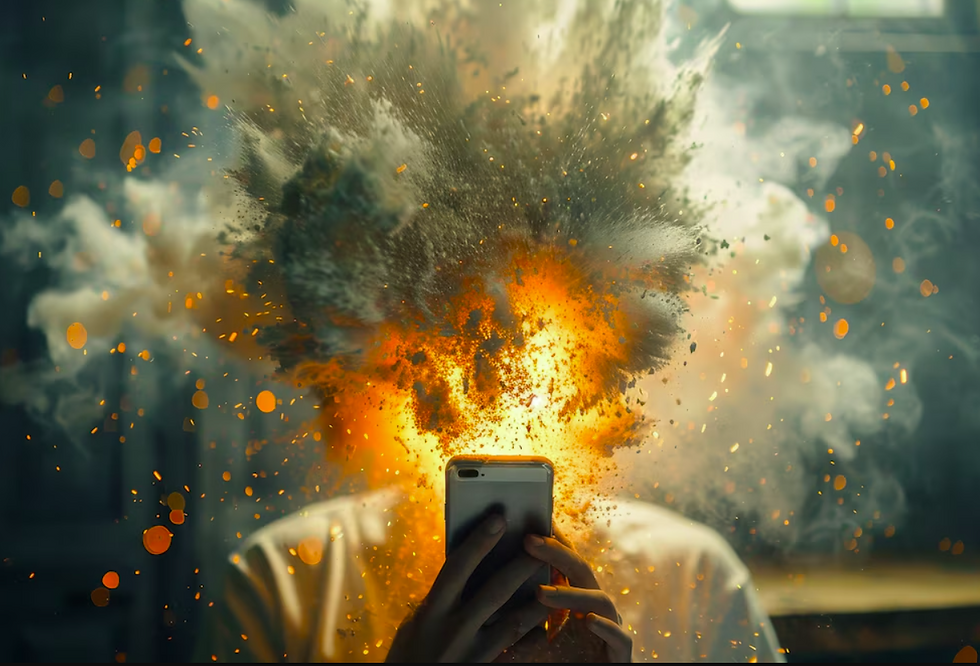Landfills to Data Dumps | The New Frontier of Mankind's Pollution
- shraddha pawar
- Sep 28, 2024
- 3 min read

Five billion of the eight billion people on the planet can access the essence of your existence with a single tap, every day, every hour, and every second.
While the internet facilitates communication and knowledge, it also fuels negativity, guilt, jealousy, hopelessness, and rage.
Let us presume that at least half of these online occupants plan to contaminate cyberspace and harm unsuspecting individuals.
There is often a dark side to social media—an interconnected network that unites people through digital spaces—that we are often unaware of.
The age of technology has not been without its challenges, revealing dark sides of human nature that thrive under the mask of virtual anonymity—behaviours that in the real world would be universally categorized as "crime," a label that no one would be willing to associate with themselves.
During my time in this man-made pit, I became intimately acquainted with harsh realities.Despite my efforts to spread positivity online, I have received a barrage of curses. Simple words of gratitude for an article or video elicited hateful messages, which pierced my notifications and then my emotions.
Not long ago, a horrifying news story broke about a girl who poisoned eighteen of her family members because she refused to marry the man they chose for her.
It is concerning to note that between 3000 and 4000 adolescent girls and young women supported her homicide of eighteen people by leaving comments in her favour. "Yes queen, we support you," and "Woohoo! Great job, girl!"
It was revolting to scroll through them.
Can we believe that children as young as 4 to 14 years old have easy access to the internet and that being exposed to such offensive content will have no long-term negative impact on their mental health? Which century are we live in? What kind of generation are we breeding? Are we not creating evils devoid of basic empathy and compassion, which are essential for the survival of eight billion other species in addition to ourselves?
It is agonizing to witness the level of vitriol directed at someone who is barely attempting to bring a ray of hope to a vast expanse of the online community. The internet's anonymity allows such cowardly people to freely open up the deepest recesses of their minds without fear of repercussions.
Humans have a long history of polluting nature. But how far will our species' minds extend to pollute the electronic domain that we have created for ourselves?
The inception of technological innovations was for the synthesis of mankind. However, beneath the surface of this connectivity lies a terrifying black hole in which frustrated, violent, greedy, and desperate individuals collide.
As digital bridges connect regions, the gap between cultures and ideologies closes, exposing vulnerable hearts to malevolent forces in the virtual world.
Unquestionably, there is a pressing need to address "the criminal minds of social media," particularly given the global rise in impulsivity, frustration, anger, a lack of empathy, manipulation, and violent crimes.
This is 2024, where robots are fed human's perceptions, it'd be a massive tragedy if they turned to digesting the rotten side of us. Because if they are inculcated with our darker impulses, the line between creator and creation will blur—and it won't be in mankind's favour.
As part of the five billion internet users, we often find ourselves in emotionally charged situations where the best course of action is to proceed cautiously. The time has come to address the risks associated with social media and establish a safer and more sustainable online ecosystem. =====================================================



Comments